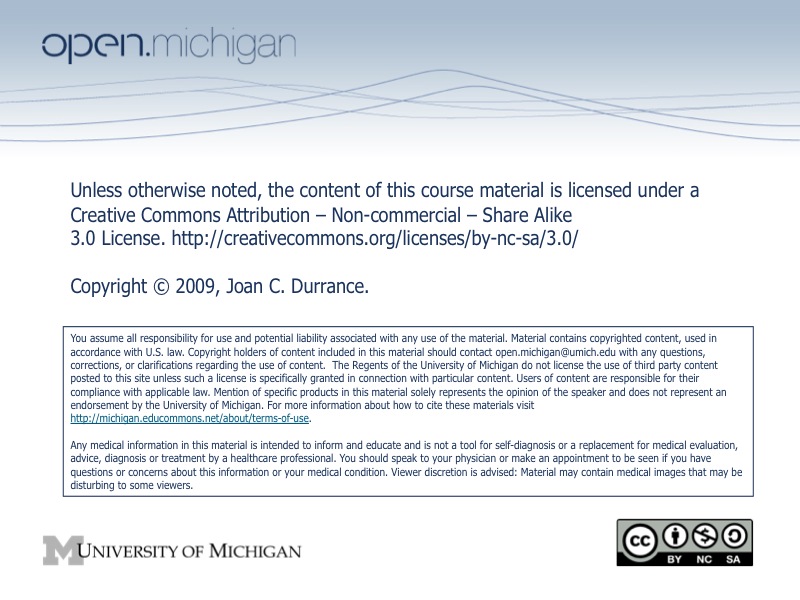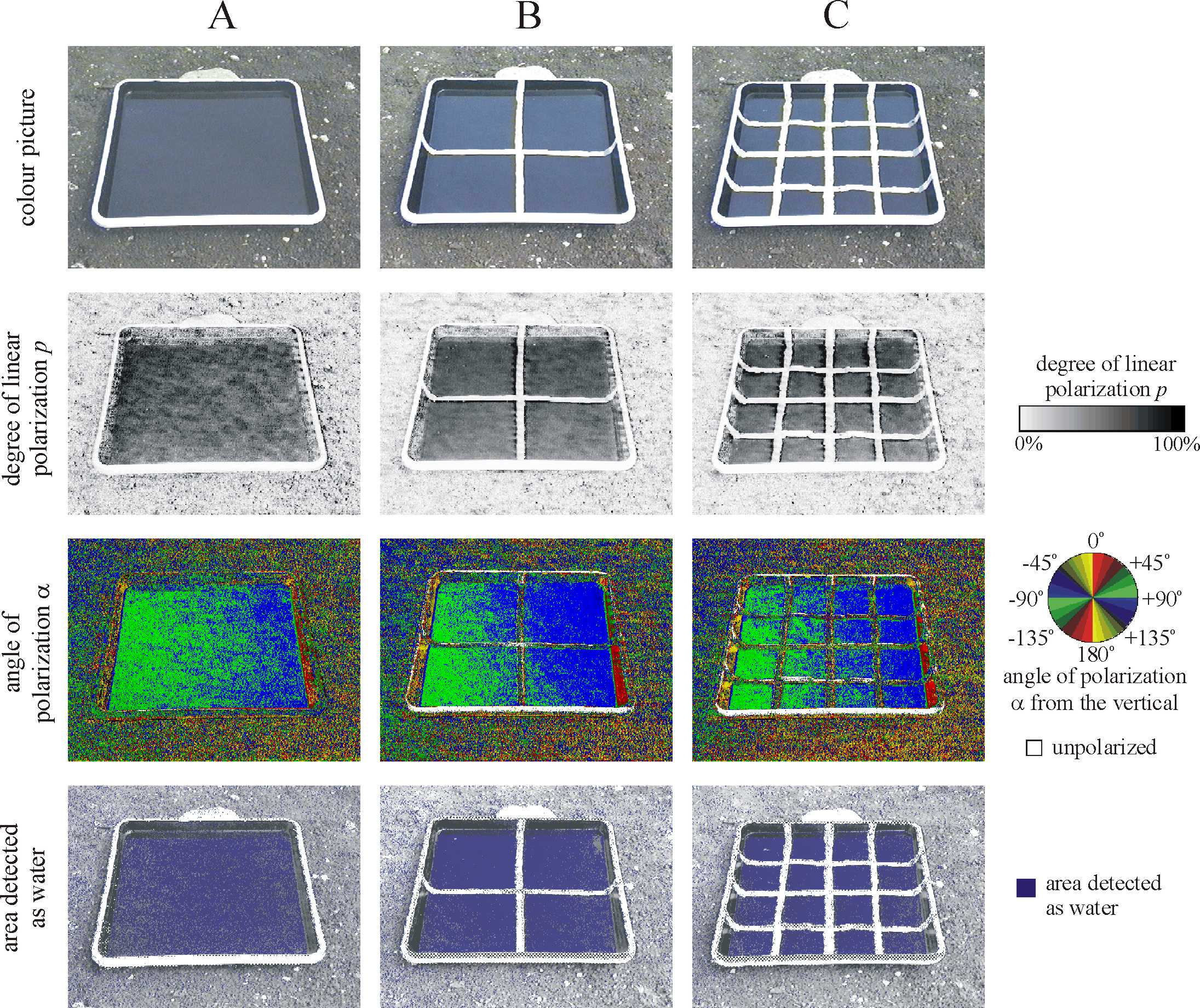SI 623 WINTER 2009 OUTCOMEBASED EVALUATION OF PROGRAMS AND
GEDRAGSCODE PERSONEEL STICHTING OPENBAAR PRIMAIR ONDERWIJS WINTERSWIJK10 SEMINAR ON TURKISH ECONOMY SYLLABUS 20202021 WINTER SEMESTER
20 JAHRE HUG HUG – WINTERSEMESTER 20092010 DI 17
20032004 ALA CD56 2004 ALA MIDWINTER MEETING THIS RESOLUTION
20072008 ALA CD41 2008 ALA MIDWINTER MEETING RESOLUTION IN
2012 WINTEREARLY SPRING THURSDAY NIGHT TRACK RACING SERIES FEBRUARY
SI 623: Outcome-Based Evaluation of Programs and Services

SI 623
Winter 2009
Outcome-Based Evaluation of Programs and Services
Class meets: Tues 1:00-4:00
Course Credits: 3.
PEP Points: 1
Faculty member: Joan C. Durrance.
COURSE GOAL: To provide an overview of the purposes and uses of outcome-based evaluation approaches as well as an introduction to methods used; to provide an opportunity to conduct a field-based study of outcomes.
COURSE OBJECTIVES
Students will:
Learn about approaches to outcome-based evaluation
Identify and use context-centered methods for evaluating public information services,
Examine the role of evaluation in developing more effective user-focused services,
Gain skill in identifying appropriate data collection and analysis methods,
Develop an understanding of recent developments in measurement and evaluation,
Gain the ability to conduct an outcome-based evaluation.
This course is designed to provide students with knowledge and skills needed for outcome assessment. We will focus on readings in the course texts that provide theoretical and practical approaches to gaining the skills needed to develop an outcomes assessment. In addition we will explore the emerging literature that has resulted from the explosion in the demand for outcome assessment, including a variety of handbooks and guides, outcome initiatives, and theoretical approaches. The course project serves as a vehicle for putting into practice immediately what is being learned in the course.
COURSE METHODS:
I have selected several methods that I believe will enhance learning on this topic. They include: course readings on theory, methods, and practice; an outcome-focused project carried out throughout the term; seminar presentations and class discussions that focus both on the readings and on aspects of the project; an occasional guest speaker with experience in OBE; class exercises. These methods are designed to be complementary.
COURSE TEXTS:
Durrance, Joan C. and Karen E. Fisher with Marian Bouch Hinton. (2005) How Libraries and Librarians Help: A Guide to Identifying User-Centered Outcomes. Chicago: ALA Editions, 2005.
Patton, Michael Quinn (2008). Utilization-focused evaluation. 4th Ed. Thousand Oaks: Sage Publications.
Basic Course Bibliography. Many resources are online. Some are on reserve at the library. URLs most often are provided.
Human Subjects and the Institution Review Board (IRB):
http://www.irb.research.umich.edu/classassignments_memo_1204.html
The IRB statement on interviewing protocols.
C-Tools Site. Contains all essential materials. Submit assignments through C-Tools.
COURSE REQUIREMENTS
I. OUTCOME BASED PILOT EVALUATION:
(IN GROUPS OF 4) 65%
Groups will be formed the first week of class to conduct a focused outcome-based evaluation of an approved course evaluation project. This outcome-based pilot evaluation project (or a pilot outcome assessment focusing on potential outcomes and outcome issues, approaches, etc.) will continue throughout the term. Three formal project working papers, consisting of short written papers, designed to help move your project along, will be shared with the class and discussed on the dates below. In addition, throughout the term the team will make short presentations on project progress, questions, problems, etc.
Project working papers:
PROGRAM CONTEXT: Due Feb 3
A contextual approach builds on what is known now and helps evaluator find out: Who uses what specific services and their component activities; The needs that participants bring to the program/service; How many use this service/program?;
In what ways (how) do they use it?; What is it about this service, activity, resource (including the staff or the building itself) that makes a difference (including hunches); What differences does it make? (hunches, stories--> outcomes). Your program context working paper isn’t going to provide all this, but understanding the context is the first step.
So, outcomes assessment starts with understanding the program context. Thus this working paper assignment will provide you with knowledge of the program’s context. This paper will provide you the background you need to develop a draft evaluation design & data collection plan in a couple of weeks. The length of this paper will vary depending on the organization you are working with. Brief lit review. Incorporate a relevant article or two that might inform an evaluation of this particular kind of program. This single space paper can, as appropriate, include appendices with additional info.
Gain an understanding of the program you will be focusing on. Look at such valuable data as the program’s website, any reports that are already available, statistics, etc., interview staff to prepare you to:
Describe the organization; describe the program’s relationship to the parent organization.
Describe in detail the program that you are studying; What is the program’s history? How did it get started? What are the goals of the program? What strategies and activities are used to carry out the goals (or if they aren’t clear to carry out the program)? How old is the program? Has it changed recently?
Describe the program’s users; What is known about program users/beneficiaries? What is it about their context that is important for program organizers to understand?
Staff & stakeholders. How is the program staffed? Roles of the staff. Volunteers? What do they contribute to the program?
Evaluation/statistics background. What kinds of experiences with evaluation has the organization had? Have there been other evaluations? -outcome evaluation studies? Describe. What kind of data (output etc.) are collected? How will your client use this study? Who are the intended users of the assessment?
Evaluation situation, issues, questions. How much does your client know about outcome assessment and other evaluation topics/issues? Have they thought about outcomes for this or another program? What do they have so far? Identify any evaluation issues that might influence the study.
DRAFT EVALUATION DESIGN & DATA COLLECTION PLAN DUE FEB 17
The evaluation design should focus on the specific aspects of the program that your client wants to focus on. Your challenge is to design a study that will permit you to help your organization a range identify program outcomes that will be useful to them as they monitor the impact of the program on its users. This means that your design must focus on users.
This design should clearly indicate the scope (and the limitations) of the study. Indicate specifically what program or service is being studied; perhaps you will further limit your study to some aspect. In any case clearly indicate what your focus is. Identify the activities of the service that you are focusing on. Indicate how the program users and the program activities interact. Provide enough information about the activities and the users so that you (with the help of your organization contact person) can look toward the outcomes of this program.
Determine how you will be able to identify potential outcomes for these activities. You may wish to develop a chart of potential program impact such as appears in HLLH (program activities, who is affected, possible outcomes.
Develop a logic model for agency outcomes to help you think through the process. Identify actual outputs and potential outputs and outcomes, recognizing that when you collect your data your outcomes will probably be broader and richer.
Develop a data collection plan. How will you collect the information that you need? What methods are most appropriate given the kind of evaluation you are conducting? What methods (be specific) will you be using?
Explain how and when you will collect data. What do you want to know and how can you best find out? Are people involved? How will you actually choose the people who will be involved? Will there be any kids? Remember IRB and minors.
What connections are there between the activity and the people who are interviewed?
What specific methods and instruments will you use? How will you develop/adapt instruments? How will you test them? Indicate what you have done re human subjects. Will you tape, etc.? What particular collection issues or logistics will you need to work out? How will you team collaborate on data collection? How will you assure confidentiality and protect the data you are collecting? Include a timeline.
Contextual factors and limitations. (E.g., An agency with CDC funding may require the use of an experimental design). Are there factors that influence choice of data collection methods?
DATA ANALYSIS PLAN Due Mar 17
What will your data look like? What format(s) is it in? What steps will you take to become very familiar with your data?
How will you make sense of it? What methods will you use to begin to identify patterns in the data? How will you organize the data? Themes, etc. Discuss your specific data and approaches. Are you using software? -4 by 6 cards? etc. What approaches will you use to identify and organize outcomes? Codebook or other data organization/analysis development plan.
FINAL OUTCOMES REPORT Report Due Apr 14
Presentations Apr 21
At the end of the term a written report focusing on outcomes and incorporating the above will be submitted and presented both to the agency and the course instructor. An oral presentation will accompany the outcome-based evaluation study. Invite your agency to attend your presentation which will be scheduled for 15 minutes.
II. SHORT SEMINAR PAPERS & PARTICIPATION 35%
Over the course of the semester each student—with a partner—will be responsible for leading the discussion on course readings based on developing a short paper. This assignment consists of a 1-2 page, single spaced seminar paper, making a brief oral presentation to the class, and leading the discussion of that set reading or assignment. Think of the following kinds of questions as you examine these articles: What is the focus of this article/chapter? What kinds of contributions does the article make (theoretical, framework, insights, practical, etc.) to understanding or identifying outcomes? What questions, issues, etc does it raise? What can I “take away” from this article? Sign up.
Additional readings. You may have the opportunity later in the term to select an appropriate reading. My assumption is that you will identify relevant readings that you want to share as a result of your seminar paper and your project.
TOPICS TO BE COVERED in SI 623:
The Changing Evaluation Landscape -- Accountability mandates (government, foundations, decision makers, etc.)
Old questions asked by organizations: How well are we meeting our objectives? How many people are we serving?
Toward Effective Outcome-focused evaluation --Exploration of the new questions: What differences does the <name of service> make? What benefits accrue to people as a result of programs and services: specifically, achievements or changes in skill, knowledge, attitude, behavior, condition, or life status for program participants?
Evaluation Concepts, Theoretical Frameworks & Issues--Frameworks; Terminology. Concepts associated with outcome evaluation. Approaches to outcome-based evaluation.
Contextual approaches. Determining outcomes requires designing a study that incorporates identifying the factors that contribute to meaningful outcomes; these include: the service model; the needs of users or clientele of the specific service; unique contributions made by staff and the environment; the set of activities designed to respond to the needs of the clientele. These are incorporated into a logic model that identifies appropriate outcomes.
Uses and value of outcome assessment Stakeholders identification, needs, concerns, roles. Trust issues; Ethics; Human Subjects--IRB
Focusing the Outcome Study Focusing on outcomes. The role(s) of the evaluator. Making the connections between the evaluator and the organization. Focusing on assuring that contextual factors are incorporated into the evaluation.
Designing & executing the outcome study, including the all-important choice of methods. Developing a logic model; Identifying and minimizing design problems and issues; understanding the context central to the study; choosing appropriate data collection methods; collecting relevant data; triangulation of data.
Data analysis, interpretation, and reporting outcomes includes: developing a coherent framework for analysis; understanding analysis issues and the problems associated with choosing outcomes; determining outcomes. Inferences. Causality. Reporting; accountability.
201617 WINTER SCHEDULE (AS OF 21017) GIRLS BASKETBALL FRI
2UNIT SYLLABUS SCIENTIFIC WRITING HRP 214 WINTER 2012
3UNIT SYLLABUS SCIENTIFIC WRITING HRP 214 WINTER 2012
Tags: evaluation of, participants? evaluation, winter, programs, outcomebased, evaluation
- DOĞRUDAN YABANCI YATIRIMLAR İÇİN HİSSE DEVRİ BİLGİ FORMU BU
- AUTOSHAPE 1 FORMULARIO DE PRIMER REGISTRO EN ESPAÑA CON
- LEADERREGION BAUTZENER OBERLAND PROJEKTVORSCHLAG MASSNAHME A PROJEKTVORSCHLAG AUSZUFÜLLEN VOM
- SOLICITUD TURNO DE MEDIACIÓN REQUIRENTE APELLIDOS
- MYSPANISHLAB® FREQUENTLY ASKED QUESTIONS AND ANSWERS I FORGOT
- FELIX MENDELSSOHN BARTHOLDY ELIAS ORATORIUM NACH WORTEN DES ALTEN
- NAME DATE IT’S CATCHING KEY WORDS INFECTIOUS PROCEDURE
- (IME I PREZIME PODNOSITELJA ZAHTJEVA) OIB PODNOSITELJA
- LANDSTINGSFULLMÄKTIGES REGLER 2011 FÖRSLAG TILL LANDSTINGSSTYRELSEN DEN 27 OKTOBER
- NA ZAHTEV(PITANJE)POTENCIJALNIH PONUĐAČA OVIM PUTEM DOSTAVLJAMO TRAŽENA POJAŠNJENJA (
- VILLAGE OF BUENA VISTA 1050 GRAND AVENUE BUENA VISTA
- 3 PROTOKOLL GEMEINDERATSSITZUNG VOM 28012016 ANWESENDE CHRISTIANE GRINDAU DOROTHEA
- SPECIFICATION DOC NO SRONEURECA SYSSP2005001 ISSUE 1 DATE 12
- REINDEXING (CCP4 GENERAL) NAME REINDEXING INFORMATION ABOUT CHANGING
- MANDAMIENTOS PARA COMPLETAR EL FORMULARIO DEBERÁ TENER EN CUENTA
- 2 SPEISEPLAN VOM 1014062019 BITTE GEBEN SIE EIN VON
- ISO 14000 MEMORANDUM NOMINATION FOR DOD PILOT STUDY
- COMMON GROUND A CROSSCULTURAL SELFDIRECTED LEARNER’S INTERNET GUIDE INDIVIDUAL
- BOLOGNA SÜRECİ UYUM ÇALIŞMALARI PROGRAM BİLGİ PAKETİ VE DERS
- LAKESHORE LUTHERAN LEAGUE DIVISION II TRACK MEET GRADES
- GROUPE INTERNATIONAL DE RECHERCHES BALZACIENNES COLLECTION BALZAC BALZAC
- PROGRAMA DE FORMACIÓN E INSERCIÓN EN LA EMPRESA EMPRESA
- DER TAGESSPIEGEL INGO BACH 10876 BERLIN TELEFON (030) 26009
- INSTITUTO NACIONAL DE VIGILANCIA DE MEDICAMENTOS Y ALIMENTOS –
- Will tv Stations Still Compete After Merger? Heres Hoping
- TOP TEN EDUCATIONAL ADVANTAGES OF ONLINE DISCUSSION (NOWCOMMENT® WHITE
- STAVEBNÍ POVOLENÍ ¨PODÁNÍ ŽÁDOSTI O STAVEBNÍ POVOLENÍ ŽÁDOST O
- PRE 846 – FALL 2008 PAGE 9 PRE 846
- PROPUESTA DE VIAJE Y ALOJAMIENTO GRUPO COLEGIO ABOGADOS (MALAGA)
- REFERENCER GEOFFREY | I AM HAPPY I RECEIVED THE
VULNÉRABILITÉ DES ÉCOSYSTÈMES MÉDITERRANÉENS AUX ÉVÉNEMENTS CLIMATIQUES EXTRÊMES SPÉCIALITÉ
 TABANIDPROOF ZEBRAS SUPPLEMENTARY MATERIAL ÁDÁM EGRI ET AL ELECTRONIC
TABANIDPROOF ZEBRAS SUPPLEMENTARY MATERIAL ÁDÁM EGRI ET AL ELECTRONICDOCUMENTACIÓN NECESARIA PARA CONTRAER MATRIMONIO CIVIL LA TRAMITACIÓN HA
PETITION FOR ORDER DECLARING NO ADMINISTRATION NECESSARY INSTRUCTIONS I
CONFIGURACIONES DE LA TRANSFERENCIA MASOQUISMO Y SEPARACION DAVID LAZNIK
SPRAWOZDANIE Z WYKORZYSTANIA ŚRODKÓW W ROKU 2016 DANE PODSTAWOWE
 NA PODLAGI 9ČLENA ZAKONA O UPORABI SLOVENSKEGA ZNAKOVNEGA JEZIKA
NA PODLAGI 9ČLENA ZAKONA O UPORABI SLOVENSKEGA ZNAKOVNEGA JEZIKADECREES INDEX 1987 1992 2000 1987 DECREES DECREE
KOALICIJA „GALIU GYVENTI“ 2007 M VEIKLOS ATASKAITA KOALICIJOS NARIŲ
 WWWMONOGRAFIASCOM SEGUNDO TRABAJO DE INVESTIGACIÓN DE TEORÍA
WWWMONOGRAFIASCOM SEGUNDO TRABAJO DE INVESTIGACIÓN DE TEORÍACURRICULUM VITAE ET STUDIORUM DI ILARIA MALAGRINO DATI PERSONALI
BIOGRAFIA RAMON MUNTANER TORRUELLA NEIX A CORNELLÀ DEL
ZALBA MULTIVARIJANTNA STATISTIKA MZ M 59 A1S TIJANA ILIC
KOŁOBRZEG 21052020R ZAPYTANIE OFERTOWE NA BUDOWĘ SYSTEMU SYGNALIZACJI WŁAMANIA
REPUBLIC OF THE PHILIPPINES PHILIPPINE ECONOMIC ZONE AUTHORITY ROXAS
 RENCANA BISNIS HYDRO GARDEN LIVE A HEALTHY LIFE BANDUNG
RENCANA BISNIS HYDRO GARDEN LIVE A HEALTHY LIFE BANDUNGSEBRINGLOCAL SCHOOLS PLAN FOR ENGLISH LANGUAGE LEARNERS “OPENING THE
 THE DOOMSDAY ARGUMENT AND THE SELFINDICATION ASSUMPTION REPLY TO
THE DOOMSDAY ARGUMENT AND THE SELFINDICATION ASSUMPTION REPLY TO TEMPLATE GOODS SPECIFICATION TEMPLATES GOODS SPECIFICATION 1 DESCRIPTION OF
TEMPLATE GOODS SPECIFICATION TEMPLATES GOODS SPECIFICATION 1 DESCRIPTION OFJUNTO A LA PROPUESTA DEL SEGMENTO SE AÑADE LA